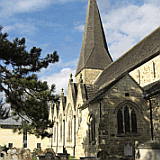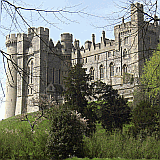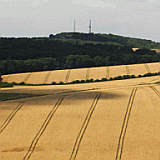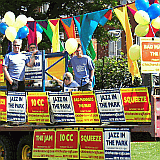A Short History of Cocking
by the Cocking History Group
Published by Studio Gallery PublicationsSUSSEX BOOK REVIEW
This book is one of the by-products of the research of the Cocking History Group as part of the West Sussex Parish Maps project. The main fruit of that labour was the exceptional Cocking History Column in the village - a permanent reminder of some of the key events in Cocking's history.
But the book itself is pretty special too.
A Short History of Cocking is packed with snippets of information about the village - the odd days when something interesting happened - or even probably happened, such as the days when the king or the queen of the day may have passed through the village on the way to somewhere else.
This slim history of Cocking stands as a good representative of the history of many of the villages of West Sussex.
Scraps of information about Saxon times give way to more substantial details of landholdings in the middle ages. Church records start to record the minutiae of village life and the lives of important personalities, such as successive members of the Challen family who farmed in Cocking at Crypt Farm from 1487 until 1843.
The chapters on the poor and the rural economy are very good, illustrating just how different the last thirty years have made Sussex villages.
Relatively few people now scratch a living in Cocking and the state provides comparatively lavishly for the poor. People no longer starve or get sent to the segregated poorhouse at Budgenor Lodge at Midhurst - now converted, as if to illustrate the point, into luxurious apartments.
In the last 150 years or so Cocking has been surprisingly industrial, with its chalk pit and lime works, numerous mills and a brickworks in the north of the parish. The railway visited Cocking for too short a time to make a return on the huge investment required for its construction, leaving behind the tunnel under the Downs.
Cocking Parish Council asked for the use of the tunnel in the event of a 1980s nuclear holocaust - a sign that even at a moment of mass destruction, the legal rights of big landowners remain the most enduring factor in village life, just as they were a thousand years ago.
Book reviewed by Mark Hoult, West Sussex.info
- Art Clubs
- Art Galleries
- Art Trails
- Visual Arts
- Arts Funding
- Sussex Artists
- Sculpture
- Theatre
- Theatre listings
- Theatres







